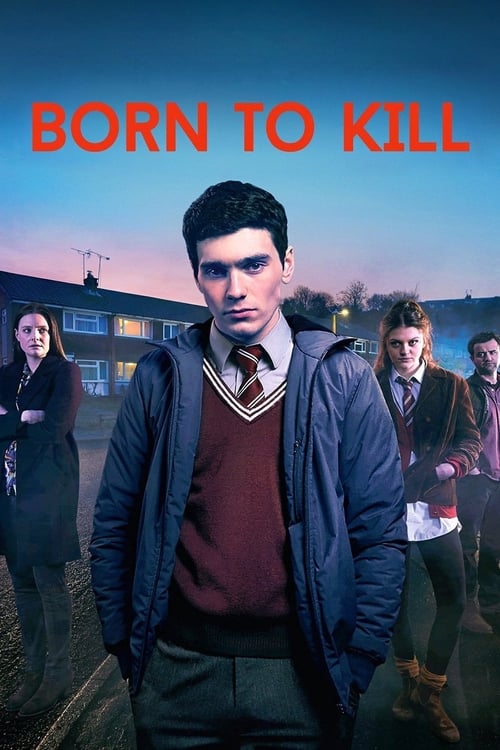
Ask Your Own Question
What is the plot?
The story begins with a focus on Sam, a troubled teenager living in a suburban area. He struggles with his emotions and exhibits signs of deep-seated anger and isolation. His home life is strained; his mother, a single parent, is often preoccupied with her own issues, leaving Sam feeling neglected. He has a close relationship with his mother but is increasingly drawn to darker thoughts and fantasies.
As the narrative unfolds, we are introduced to a new character, a girl named Chrissy, who becomes a significant part of Sam's life. Chrissy is outgoing and friendly, contrasting sharply with Sam's withdrawn nature. Their initial interactions are awkward, but Chrissy's persistent kindness begins to break through Sam's emotional barriers. Sam is intrigued by her, and he starts to open up, revealing glimpses of his troubled psyche.
Sam's internal struggles intensify as he grapples with his violent impulses. He becomes fixated on the idea of killing, which he views as a way to exert control over his life. This fixation is depicted through a series of disturbing daydreams and fantasies where he imagines himself as a powerful figure. These thoughts become increasingly consuming, leading him to act out in small ways, such as bullying a classmate.
As Sam and Chrissy's relationship develops, they share moments of vulnerability. Chrissy confides in Sam about her own family issues, creating a bond between them. However, Sam's darker tendencies begin to surface, and he struggles to reconcile his feelings for Chrissy with his violent urges. He becomes paranoid about losing her, which exacerbates his emotional turmoil.
The turning point occurs when Sam's violent fantasies manifest into reality. After a confrontation with a bully at school, Sam's rage boils over, and he attacks the bully, resulting in severe consequences. This incident marks a significant shift in Sam's character, as he begins to embrace his darker side. The thrill of violence becomes intoxicating for him, and he starts to see it as a means of empowerment.
Following the attack, Sam's relationship with Chrissy becomes strained. She is disturbed by his behavior and begins to distance herself. Sam, feeling abandoned, spirals further into his violent thoughts. He becomes obsessed with the idea of committing a serious crime, believing it will solidify his identity and give him a sense of purpose.
In a pivotal scene, Sam decides to act on his impulses. He meticulously plans a violent act, choosing a location and time that he believes will maximize the impact of his actions. The planning process is depicted in detail, showcasing Sam's meticulous nature and his growing detachment from reality. He prepares himself mentally, rehearsing what he will do and how he will feel afterward.
On the day of the planned attack, Sam arrives at the location with a sense of determination mixed with anxiety. As he executes his plan, the tension escalates. The scene is chaotic, filled with panic and confusion as Sam confronts his targets. The violence is graphic and intense, showcasing the full extent of Sam's transformation from a troubled teen to a perpetrator of horrific acts.
In the aftermath of the attack, the consequences of Sam's actions begin to unfold. The community is in shock, and law enforcement launches an investigation. Sam's internal conflict deepens as he grapples with the reality of what he has done. He feels a mix of exhilaration and guilt, struggling to understand the implications of his actions.
As the investigation progresses, Chrissy learns about the attack and is horrified to discover Sam's involvement. She confronts him, leading to a tense and emotional exchange. Sam attempts to justify his actions, but Chrissy is unable to reconcile the person she thought she knew with the violent individual he has become. This confrontation serves as a catalyst for Sam's further descent into darkness.
The series culminates in a dramatic climax where Sam's world begins to unravel. He faces increasing pressure from law enforcement and the community, leading him to make desperate choices. In a final act of defiance, Sam attempts to escape the consequences of his actions, but his plans are thwarted. The emotional weight of his choices crashes down on him, leaving him isolated and alone.
The story concludes with Sam's fate hanging in the balance, leaving viewers to grapple with the complexities of his character and the tragic trajectory of his life. The final scenes depict the aftermath of his actions, highlighting the impact on those around him and the irreversible nature of his choices.
What is the ending?
In the ending of "Born to Kill," the story culminates in a tense confrontation between the main characters, leading to tragic outcomes. The series concludes with the fates of the key characters being sealed in a dramatic and emotional manner.
As the narrative unfolds in the final episodes, we see the aftermath of the escalating tension between Sam and his mother, who has been struggling to understand her son's violent tendencies. Sam, portrayed as a deeply troubled individual, grapples with his identity and the darkness within him. His internal conflict reaches a boiling point as he becomes increasingly isolated from those around him.
In a pivotal scene, Sam's mother, who has been trying to protect him, realizes that she can no longer shield him from the consequences of his actions. The emotional weight of her realization is palpable as she confronts Sam about his behavior. This confrontation is charged with desperation and fear, as she understands that her son is capable of unspeakable violence.
Simultaneously, the police are closing in on Sam, having pieced together the clues leading to his involvement in a series of crimes. The tension escalates as Sam, feeling cornered, makes a fateful decision. In a moment of panic and confusion, he lashes out, leading to a tragic confrontation that results in irreversible consequences.
The climax of the series occurs when Sam's actions lead to a violent encounter with law enforcement. The scene is fraught with tension as the police attempt to apprehend him. In a heart-wrenching moment, Sam's mother arrives on the scene, desperately trying to reach out to her son. The emotional turmoil is evident as she pleads with him to surrender, but Sam, consumed by his inner demons, is unable to see a way out.
In the final moments, the confrontation escalates, and Sam's fate is sealed in a tragic turn of events. The series ends with a haunting silence, leaving viewers to grapple with the consequences of Sam's choices and the impact on those who loved him. His mother is left devastated, grappling with the loss of her son and the realization that she could not save him from himself.
The ending of "Born to Kill" serves as a poignant reflection on the complexities of familial relationships, the struggle with mental health, and the tragic consequences of violence. Each character's fate is intertwined with the central themes of the series, leaving a lasting impression on the audience.
Is there a post-credit scene?
The TV show "Born to Kill," produced in 2017, does not feature a post-credit scene. The series concludes its narrative without any additional scenes after the credits roll. The final moments of the show focus on the resolution of the main characters' arcs, particularly the complex relationship between Sam and his mother, as well as the consequences of Sam's actions throughout the series. The emotional weight of the story is left to resonate with the audience, emphasizing the themes of nature versus nurture and the impact of trauma.
What motivates Sam to commit his first murder in Born to Kill?
Sam's first murder is driven by a complex mix of internal turmoil and external pressures. He struggles with his identity and the expectations placed upon him by his family and society. The act of killing becomes a twisted form of liberation for him, allowing him to assert control over his chaotic emotions and the world around him.
How does the relationship between Sam and his mother influence his actions throughout the series?
Sam's relationship with his mother is fraught with tension and emotional neglect. She is often dismissive of his feelings, which deepens his sense of isolation. This lack of maternal support fuels his anger and confusion, leading him to seek validation through violent means. Her inability to recognize his struggles ultimately contributes to his descent into darkness.
What role does the character of Chris play in Sam's life and his development as a killer?
Chris serves as both a friend and a catalyst for Sam's violent tendencies. Initially, he provides companionship and a sense of normalcy, but as the series progresses, Chris becomes increasingly aware of Sam's darker impulses. His attempts to distance himself from Sam highlight the moral conflict within their friendship, ultimately pushing Sam further into his violent path.
How does the show depict the impact of Sam's actions on his family and friends?
The repercussions of Sam's actions are profound and devastating. His family is torn apart by the revelations of his crimes, leading to a breakdown in trust and communication. Friends who once supported him become fearful and confused, grappling with the reality of who Sam has become. The emotional fallout is depicted through intense scenes of confrontation, grief, and betrayal, showcasing the ripple effect of his violence.
What are the key moments that reveal Sam's psychological state throughout the series?
Key moments that reveal Sam's psychological state include his increasingly erratic behavior, moments of intense rage, and his interactions with others that oscillate between charm and menace. Flashbacks to his childhood provide insight into his troubled psyche, while scenes of him grappling with guilt and confusion after his violent acts illustrate his internal conflict. These moments are crucial in understanding the depth of his character and the motivations behind his actions.
Is this family friendly?
"Born to Kill," produced in 2017, is not considered family-friendly due to its mature themes and content. The show delves into complex psychological issues, particularly focusing on a young boy with sociopathic tendencies. Here are some potentially objectionable or upsetting aspects:
-
Violence: The series contains scenes of violence, including physical confrontations and implications of harm, which may be distressing for younger viewers.
-
Murder and Crime: The narrative explores themes of murder and criminal behavior, presenting situations that could be unsettling.
-
Mental Health Issues: The portrayal of sociopathy and the psychological struggles of the characters may be challenging for sensitive viewers, as it delves into dark emotional states.
-
Family Dynamics: The show examines dysfunctional family relationships, including neglect and emotional turmoil, which could be upsetting for some audiences.
-
Intense Emotional Scenes: There are moments of high tension and emotional distress that may evoke strong reactions.
Overall, the series is intended for a mature audience and may not be suitable for children or those sensitive to such themes.





































